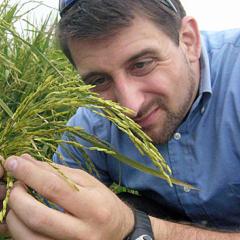Krupnik on water pumps for sustainable crop intensification in Bangladesh's delta
With conventional centrifugal (CEN) pumps, less than 50% of southern Bangladesh's farmers invest in irrigation, partly due to high diesel energy costs. New policies are prioritizing sustainable crop intensification in Bangladesh's delta. This objective is unlikely to be achieved without fundamental changes in the energetics and economics of irrigation. Where surface water is available, axial flow pumps (AFPs) may comprise part of the solution to this problem. Comparing the hydraulic, energetic and economic performance of prototype AFPs and CEN pumps, the latter produced less yet consistent rates of discharge than AFPs at all heads. AFP discharge was conversely larger than CEN pumps, but inversely related to increasing head. Discharge per unit of fuel was highest for AFPs (+51 and +21% at 1- and 2-m lifts), but declined with rising head until convergence with CEN pumps at 2.8 m. High AFP discharge reduced irrigation time requirements. On average, AFPs can save between US$70 and 38 ha–1 season–1 for boro rice at 1- and 3-m heads, respectively, and between US$15 and 8, and 26 and 14 ha–1 season–1 for wheat and maize. Fuel efficiency reductions above 2.8 m highlight the importance of improved prototyping and technology targeting to ensure AFP deployment in environments where the greatest efficiency gains are achievable.
